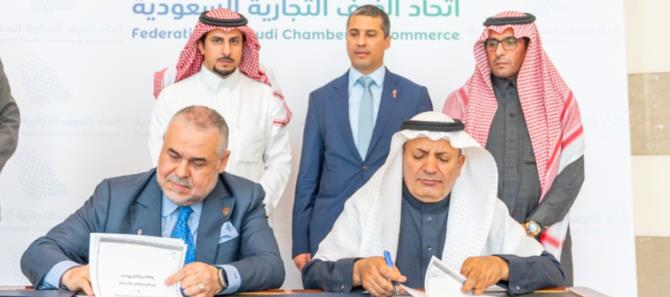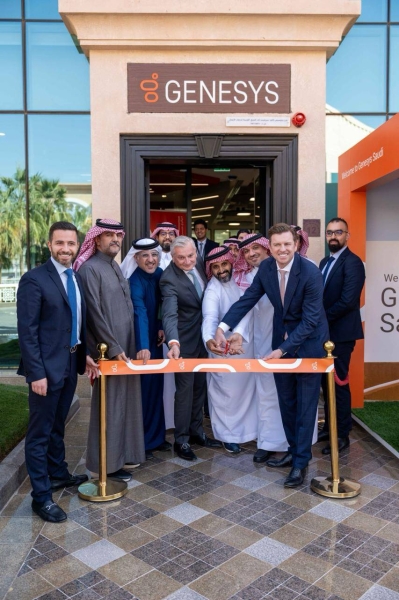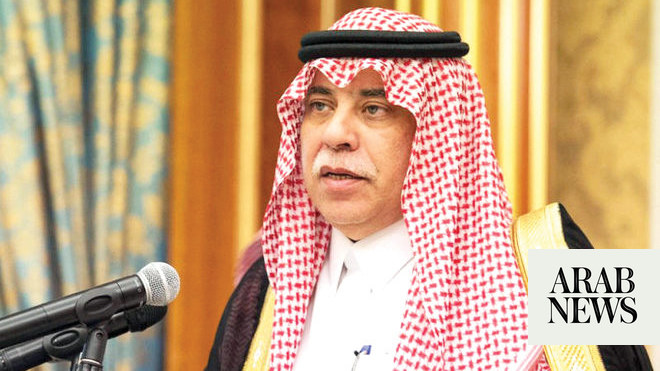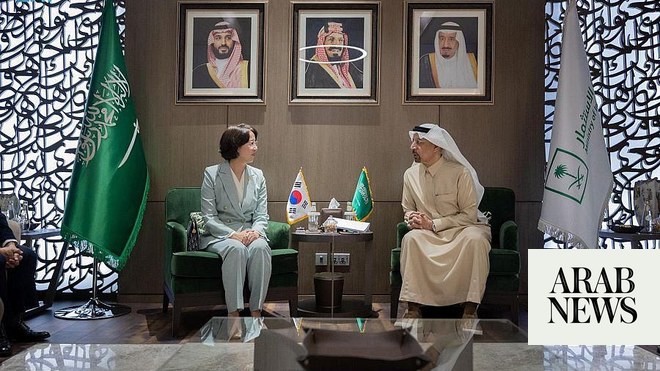
RIYADH: Saudi Arabia is set to enhance private sector cooperation with Thailand as the Southeast Asian nation opens its first Board of Investment office in Riyadh, a top official announced.
On the sidelines of a business forum in the Saudi capital, Minister of Investment Khalid Al-Falih highlighted that this marks Thailand’s inaugural office in the Middle East, encouraging stronger bonds and new investment opportunities in both countries.
This came as the minister lauded the steady trade relations, that saw business soar to $8.8 billion in 2023, up from $7.5 billion following the nations’ restored ties in 2022. This represents nearly 22 percent of Thailand’s total trade with the Middle East, underscoring a flourishing economic partnership.
Addressing the business delegation at the Saudi-Thailand Investment Forum, Al-Falih said: “Representative offices from the Kingdom of Saudi Arabia and your country will do a great deal of facilitating private sector to private sector cooperation and allowing us to reach the potential that I mentioned.”
He added: “I believe it will continue to grow at double digits as it has been the last couple of years. In investment, we’ve also seen growth, although from very small numbers, with FDI (foreign direct investment) stock doubling since 2019 in the Kingdom of Saudi Arabia.”
The minister added that travel and tourism are returning to previous levels, with close to 200,000 tourists and visitors traveling from Saudi Arabia to Thailand. He also noted that over 30,000 Thai visitors had come to the Kingdom the previous year to experience Saudi Arabia.
The Thailand BOI office will cover a total of 13 countries in the Middle East, including Bahrain, Qatar, Kuwait, Turkiye, and the UAE.
The Riyadh headquarters is Thailand BOI’s 17th overseas office, with two additional locations in China and Singapore set to be added soon.
“We hope investors from Saudi Arabia and the Middle East will consider making Thailand an investment base to expand business in ASEAN (Association of Southeast Asian Nations) and take advantage of Thailand’s membership in the RCEP (Regional Comprehensive Economic Partnership) agreement, the world’s largest free trade area,” said Narit Therdsteerasukdi, secretary-general of the Thailand BOI.
He added: “We believe there is a strong potential for investment and cooperation in several key sectors, including agriculture, processed food, renewable energy, healthcare and medical services, as well as automotive, especially electric vehicles.”
Additionally, Al-Falih explained that the Thailand BOI office will boost areas of cooperation between both countries in several areas.
“Before I do that, let me assure you — and this is not just me, not our Ministry of Investment, not the government, but the entire Saudi Arabia — we are very bullish on Thailand and indeed very impressed with your achievements,” the minister said.
He continued: “Your GDP (gross domestic product) per capita has tripled in 20 years, while your export structure has evolved significantly into increasingly sophisticated products in the same time frame.”
Furthermore, the minister recognized Thailand as one of the founding members of ASEAN, a significant economic alliance that holds importance not only in Asia but globally.
Due to Thailand’s strategic location and economic strength — the second-largest economy in ASEAN with a GDP exceeding half a trillion dollars — it is a crucial partner for Saudi Arabia.
“Especially as you are bolstered by ASEAN free trade agreements with most major economies, as you outlined to me this morning. These agreements include big economies in East Asia, as well as South Asian economies. Of course, anchored by India,” Al-Faih said.
The minister stressed common parallels between the two countries, noting they share a “great deal of complementarity.” Thailand has its National Strategy 2037, whereas Saudi Arabia has its Vision 2030.
“Which naturally leads me to emphasize the energy sector, including its multifaceted branches downstream: biofuels, biochemicals and CCUS (carbon capture utilization and storage), hydrogen, and renewables,” he said.
Al-Falih added: “This is obviously an area where we share common ambitions, and the Kingdom has unique capability, creating numerous investment opportunities for both countries in terms of supply chain products as well as project development.”
Saudi Arabia’s demand for agricultural and food processing products is expected to reach over $130 billion by 2030, with a compound annual growth rate of 7.5 percent.
Meanwhile, Thailand’s agricultural and food processing sectors were robust in 2022, with exports totaling $45 billion.
“This presents a huge area of complementary that would boost trade and investment as well as enhance food security in both nations,” Al-Falih underscored.
Moreover, during the event’s opening speech, Thailand’s Minister of Foreign Affairs, Maris Sangiampongsa, underscored the robust private sector collaboration between both countries, noting the success of the International Mega Fair organized by the Thai Chamber of Commerce in Saudi Arabia.
This event featured over 30 Thai businesses showcasing 1,000 products from 200 brands, significantly boosting Thailand’s presence in Saudi Arabia.
Looking ahead, Sangiampongsa announced the upcoming International Mega Fair 2024 in Riyadh, scheduled for November. This event aims to promote trade across diverse sectors, such as construction materials, hospitality, and defense technology.
The minister expressed confidence in Thai investment representatives’ readiness to strengthen cooperation with their Saudi counterparts, building on the momentum of past successes.
“As both our nations are located strategically at the crossroads of continents, we recognize that connectivity and efficiency are part and parcel of any feasible development strategy,” Sangiampongsa stated.
He continued: “That is why, as part of our plan, Thailand launched our flagship Landbridge Project, which will connect the Gulf of Thailand with the Andaman Sea and the Indian Ocean. This bold initiative will reduce commuting time and costs by 15 percent.”
The forum saw the signing of 11 memoranda of understanding between Thai and Saudi companies, covering cooperation in areas including energy, infrastructure, engineering, agriculture, and forestation.
The event also featured bilateral meetings and discussions between private sector representatives, which reviewed developments in the investment environment in Saudi Arabia and Thailand.
Additionally, Saudi Assistant Minister of Investment Ibrahim Al-Mubarak met with Therdsteerasukdi to discuss ways of cooperation and developments in the work of the Saudi-Thai Coordination Council.
Further, a meeting was held between Saad Al-Khalb, CEO of Saudi EXIM, and Senior Executive Vice President of Export-Import Bank of Thailand Benjarong Suwankiri, discussing areas of cooperation aimed at enabling promising investment opportunities.
In 2023, Thailand’s applications for investment promotion surged to a nine-year peak of 848.3 billion baht (approximately $24 billion), marking a 43 percent increase from the previous year.
This growth was driven by significant foreign direct investments primarily in five key sectors outlined in the BOI’s new Investment Promotion Strategy: green industries, automotive (including electric vehicles), and semiconductors. Additionally, investments in advanced electronics, digital and creative industries, and international business centers contributed significantly.
These sectors accounted for more than half of the total investment pledges. Leading sources of investment included China, Japan, Singapore, and the US.












